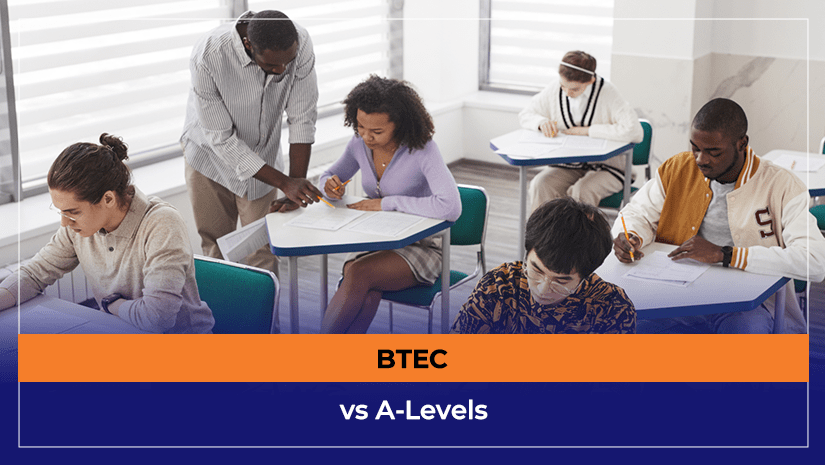
Looking for a qualification that bridges the gap between textbook theory and real-world application? A practical program that equips you with knowledge and the practical skills to thrive in your chosen field. That's the magic of a BTEC diploma, an increasingly popular option for students seeking a dynamic and career-oriented education.
But what is a BTEC Diploma exactly, and why is it becoming increasingly relevant in today's dynamic job market? The acronym BTEC stands for Business and Technology Education Council. It graduates not just for higher education but also for immediate employment, giving them a competitive edge in a dynamic world. Let’s dig deeper.
These diplomas, equivalent to GCSEs, provide a solid foundation in a specific field. Consider them a springboard, introducing you to core concepts and igniting your interest in a particular career path. They're ideal if you're still exploring your options or want to test the waters before diving into a more specialized program.
Think of these as the stepping stone to your career goals. Equivalent to A-Levels, Nationals offers a deeper dive into a subject area, equipping you with theoretical knowledge and practical skills applicable in real-world scenarios. It makes them perfect for those ready to specialize and get a head start in their chosen field. Nationals prepare you for higher education or entry-level employment, giving you a well-rounded skillset that employers value.
Craving an advanced skillset and the edge in a competitive job market? BTEC Higher Nationals are on par with the first two years of a university degree. These programs equip you with in-depth knowledge and expertise, making you highly sought-after by employers in your chosen field. They are ideal if you're looking to fast-track your career or prefer a more focused and practical alternative to a traditional university degree.
These combine classroom learning with on-the-job training, allowing you to gain qualifications while getting paid. It's a fantastic option for those eager to achieve practical work experience and earn while they learn. Apprenticeships are available across various sectors, from engineering and business to healthcare and IT. They provide a unique opportunity to learn from industry professionals and build a strong network within your field even before you graduate.

BTEC diplomas are built on a foundation of core and optional units. Core units provide a solid grounding in your chosen field's essential knowledge and skills. Optional units, however, allow you to tailor your learning to your specific interests. This flexibility lets you explore areas within your chosen field that pique your curiosity or enhance your skillset for a particular career path.
Here's a table to illustrate the breakdown of core and optional units at different BTEC levels:
|
BTEC Level |
Core Units |
Optional Units |
|
Firsts (Level 2) |
High proportion |
Limited options |
|
Nationals (Level 3) |
Strong focus |
More options for customization |
|
Higher Nationals (Levels 4-5) |
Focus on core knowledge |
Wide range of options for specialization |
BTEC diplomas utilize various assessment methods to gauge your understanding and skill development. These may include:
Here's a table outlining the grading system and corresponding UCAS points:
|
BTEC Grade |
UCAS Points |
|
Distinction* |
140 |
|
Distinction |
120 |
|
Merit |
100 |
|
Pass |
80 |
Most BTEC programs require a minimum of five GCSEs, typically at grades A-C or the numerical equivalent. These GCSEs demonstrate your foundational knowledge and preparedness for academic rigours.
The specific GCSE requirements may vary depending on the BTEC level you're pursuing:
Certain BTEC courses may have specific subject requirements related to the chosen field. For example, a BTEC in Engineering might require a GCSE in Mathematics and Physics, while a BTEC in Business might require a GCSE in English Language and Business Studies.

Here's a table summarizing the key differences:
|
Feature |
BTEC Diplomas |
A-Levels |
|
Teaching Style |
Blended: Classroom & Practical Activities |
Classroom-based |
|
Assessment Methods |
Coursework, Projects, Practical Assessments |
End-of-course Exams (with some coursework) |
|
Practical Experience |
Strong Emphasis |
Limited Focus |
BTEC diplomas are designed to equip you with the skills and knowledge employers actively seek. Here's how they open doors to exciting career prospects:
BTEC diplomas are not just springboards to employment; they can also be stepping stones to higher education. Here's how:

BTEC programs heavily integrate practical assignments and projects into the curriculum. These assignments aren't just academic exercises but a platform to hone your skills in a realistic setting. By troubleshooting challenges and collaborating with peers, you develop critical thinking, problem-solving, and teamwork abilities – all highly sought-after qualities in the workplace.
Many BTEC programs incorporate work experience placements as part of the curriculum. It allows you to gain invaluable firsthand experience in your chosen field. These placements provide real-world insights and allow you to test your skills professionally. This practical experience bolsters your resume and helps you discover your strengths and interests, setting you on a clear career path.
With a BTEC diploma under your belt, you'll be well-equipped to enter the workforce with confidence. Employers across various sectors value the blend of theoretical knowledge and practical skills that BTEC programs cultivate. Your resume will stand out, showcasing your industry-relevant skills and preparedness to contribute meaningfully from day one.
BTEC diplomas are not endpoints; they can be stepping stones to further education. Many universities recognize BTEC Nationals as valuable qualifications for entry into relevant degree programs. So, if you aspire to a university degree, your BTEC diploma can provide a strong foundation for success.
If you're eager to earn while learning, then degree apprenticeships might be the perfect option. These programs combine paid on-the-job training with university-level study, culminating in a prestigious degree qualification. Many BTEC programs serve as excellent preparation for degree apprenticeships in relevant fields.
Yes, a BTEC (Business and Technology Education Council) qualification is considered a diploma. It provides practical, career-focused education and is equivalent to other academic qualifications like A-levels.
The duration of a BTEC diploma depends on the chosen level and whether you study full-time or part-time. Typically, BTEC Firsts (Level 2) take one year for full-time study, while BTEC Nationals (Level 3) can take one to two years. BTEC Higher Nationals (Levels 4-5) are typically two years for full-time students.
BTEC diplomas use a clear grading system: Pass, Merit, Distinction, and Distinction. These grades reflect your level of achievement in the program. A Pass demonstrates a grasp of the fundamentals, while a Distinction* signifies exceptional performance.
Most universities in the UK accept BTEC qualifications. BTEC Nationals (Level 3) are considered equivalent to A-Levels for university entry purposes. To determine if a specific university accepts BTEC qualifications for your desired program, it's always best to check their admissions website or contact their admissions team directly.
A BTEC National Diploma is equivalent to three A-Levels. It provides a practical and vocational approach to learning and is recognized for university entry and employment.
In conclusion, a BTEC diploma equips you with the winning combination of practical skills and theoretical knowledge employers seek. Through project-based learning, work experience placements, and a focus on industry-relevant applications, BTEC programs prepare you to hit the ground running in your chosen field. Now that you know what is a BTEC diploma, you can choose your educational journey more wisely.

June 06 2024

February 25 2024

February 25 2024

April 02 2024

 Dr. Shafiq
Dr. Shafiq
 February 25 2024
February 25 2024
 05:40:00
05:40:00
Do you have a career plan in a Senior Care or Supervisory Care position? If so, a Level 3 Diploma will help...
Read more...
 Dr. Shafiq
Dr. Shafiq
 February 25 2024
February 25 2024
 05:43:00
05:43:00
If you are living in the UK or planning to do that, you must know about the education system there. The UK&...
Read more...
 Dr. Shafiq
Dr. Shafiq
 February 25 2024
February 25 2024
 05:50:00
05:50:00
In the recent past, you had to have a four-year bachelor’s degree to start a career. With the rapid c...
Read more...